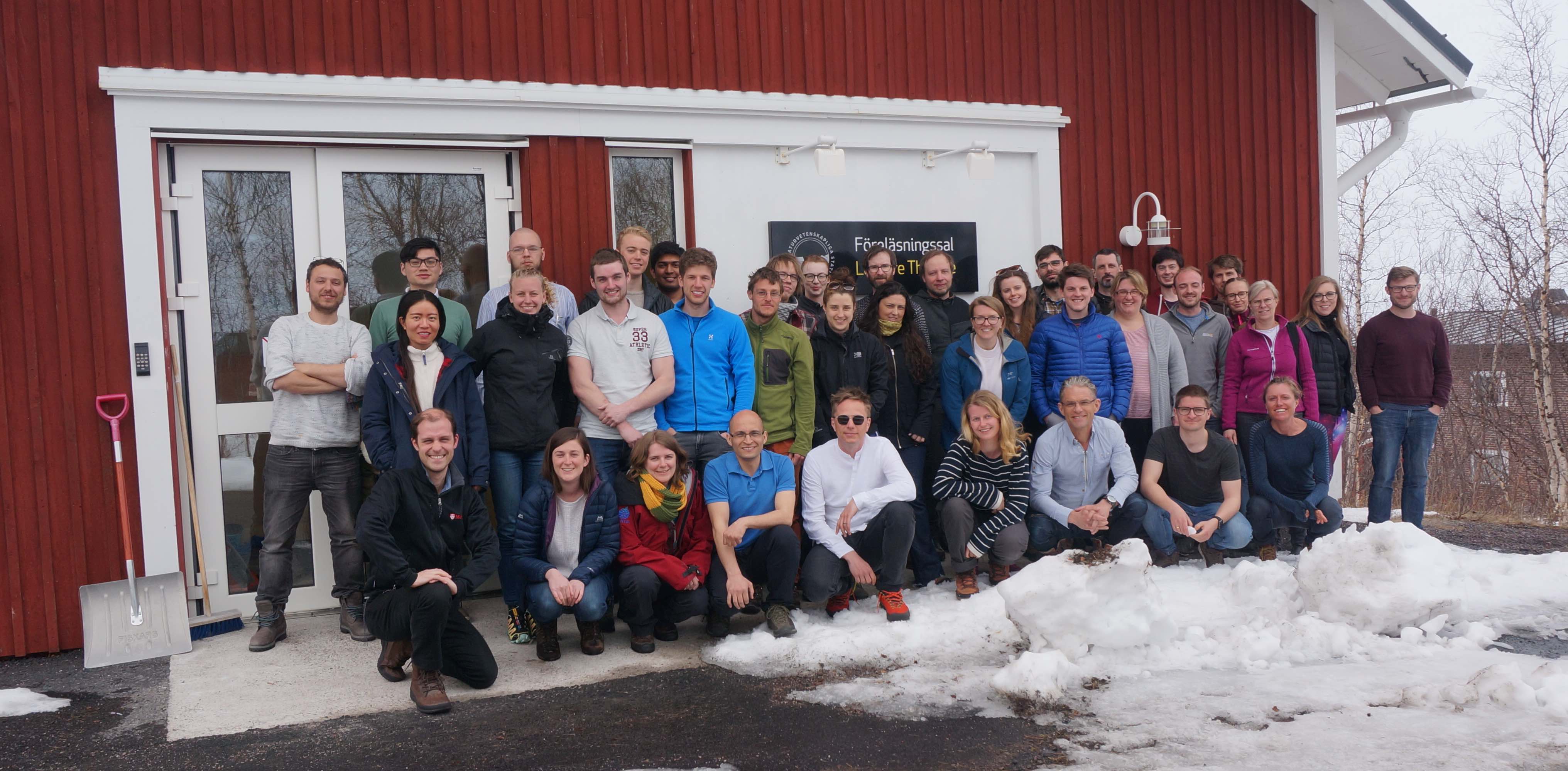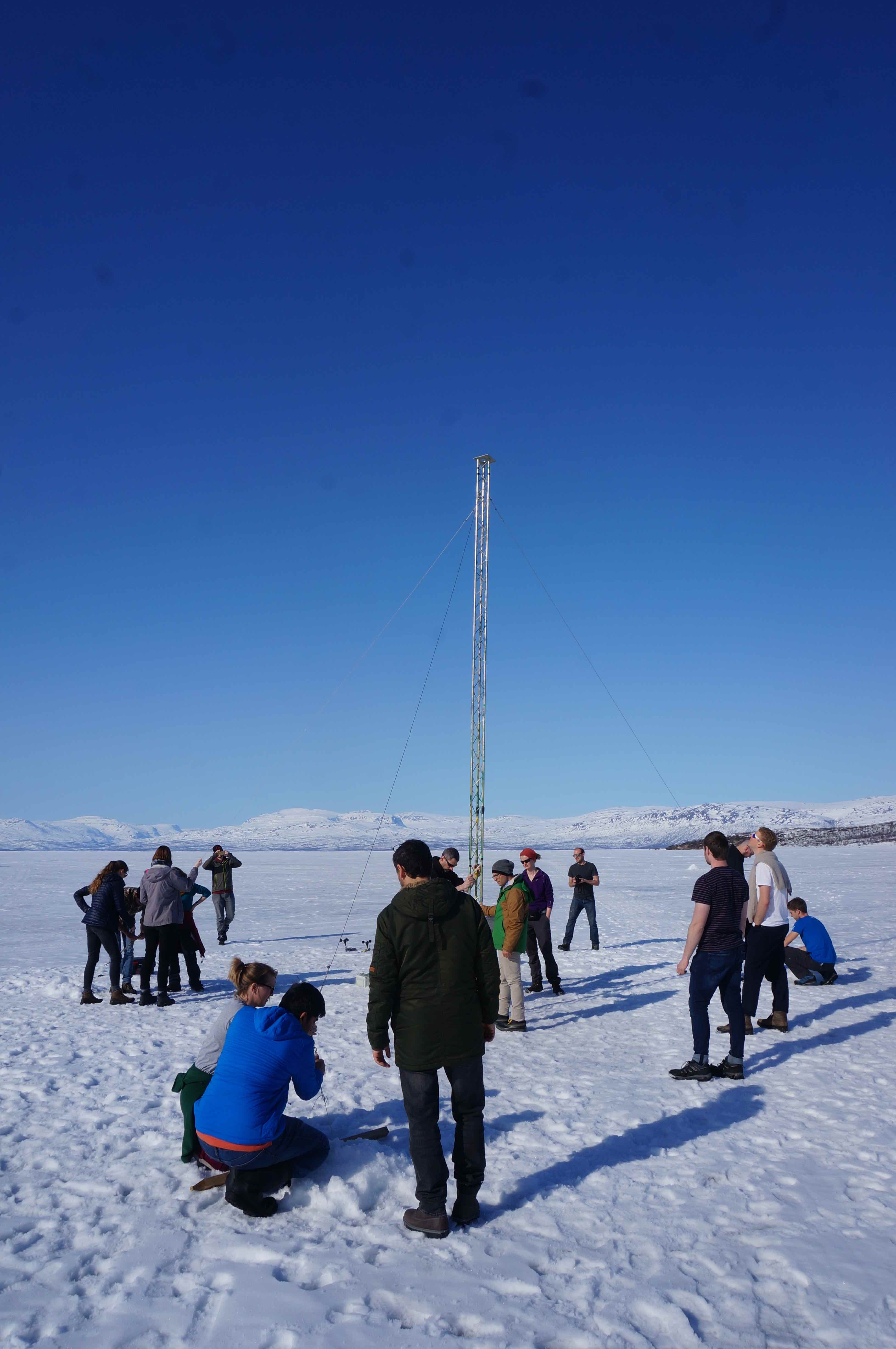In short: 100s of Swedish potatoes, 10s of delicious cinnamon rolls, 29 enthusiastic students, 26 fascinating lectures, 13 excellent lecturers, 10 hands-on practicals, 7 kind sponsors, 1 brilliant training school!
The Polar Prediction School was held from 17-27 April 2018 at the beautiful Abisko Scientific Research Station in northern Sweden. It brought together 29 students from nine different countries and at various career stages, from early PhD students through to post-docs. The programme for the school was designed to provide a comprehensive overview of the main aspects related to polar weather and climate prediction. It included theoretical lectures, practical exercises, meteorological fieldwork, and a dedicated science communication programme.

The lectures and exercises covered polar weather, chaos and predictability, polar lows, polar ocean forecasting and sea-ice modelling, sea-ice prediction and predictability, limits of predictability, data assimilation and reanalysis, model verification in polar regions, remote sensing of the cryosphere, polar boundary layer dynamics, polar mid-latitude linkages, as well as air-sea exchange and turbulence.
To introduce the students to various observational techniques as well as the challenges related to making these sorts of measurements in high latitudes, they conducted practical exercises based on data obtained from a micrometeorology mast. The mast was erected on the first full day of the training school by the students on the surface of the frozen Lake Torneträsk, a 5-minute walk away from the research station.
Radiosondes were also launched each day and the soundings were uploaded to the Global Telecommunication System, which is used in operational forecasts. In addition, a mini intense observational period was held on one day where radiosondes were launched every six hours. This was to study the diurnal cycle of the polar boundary layer at the site, even though the weather conditions at the time were not ideally suited to this.

Soft skills training was provided through a dedicated science communication programme, with six evening sessions and an afternoon of final presentations. These sessions were run by Jessica Rohde of the Interagency Arctic Research Policy Committee and specifically designed for early career researchers. Topics covered included how to distil information, tailoring messages for specific audiences, using social media, and slide design.
The students put what they learnt directly into practice through the brief informative videos (‘FrostBytes’) about their research that they worked on during the school. On the final afternoon each student presented their work and this was recorded. The videos will be made available on the APECS and APPLICATE websites.
Daily weather briefings were also made by the students each evening. They were asked to provide an overview of the day’s weather, to compare the previous day’s forecast with the observed radiosounding they made, and to analyse forecasts for the coming days using global and regional products. The briefings were an opportunity for the students to learn to interpret weather forecasts in complex polar mountain environments, such as where Abisko is located, and to better understand how today’s models perform in such regions. Furthermore, they led to interesting discussions about model skill and uncertainty in polar regions.
A diverse course such as the Polar Prediction School, bringing together a wide set of students and lecturers, helps build and maintain the community needed to address the polar prediction problem, which is inherently multi-disciplinary. Overall, the school was a great success and we recommend this model be used for any future schools for early career researchers.
The Polar Prediction School 2018 was organised as part of the EU Horizon 2020-funded APPLICATE project, in cooperation with the World Meteorological Organization’s Polar Prediction Project (PPP) in occasion of the Year of Polar Prediction (YOPP). It was also generously supported by the World Climate Research Programme's (WCRP) Climate and Cryosphere project (CliC), the International Arctic Science Committee (IASC), and the Scientific Committee for Antarctic Research (SCAR).


